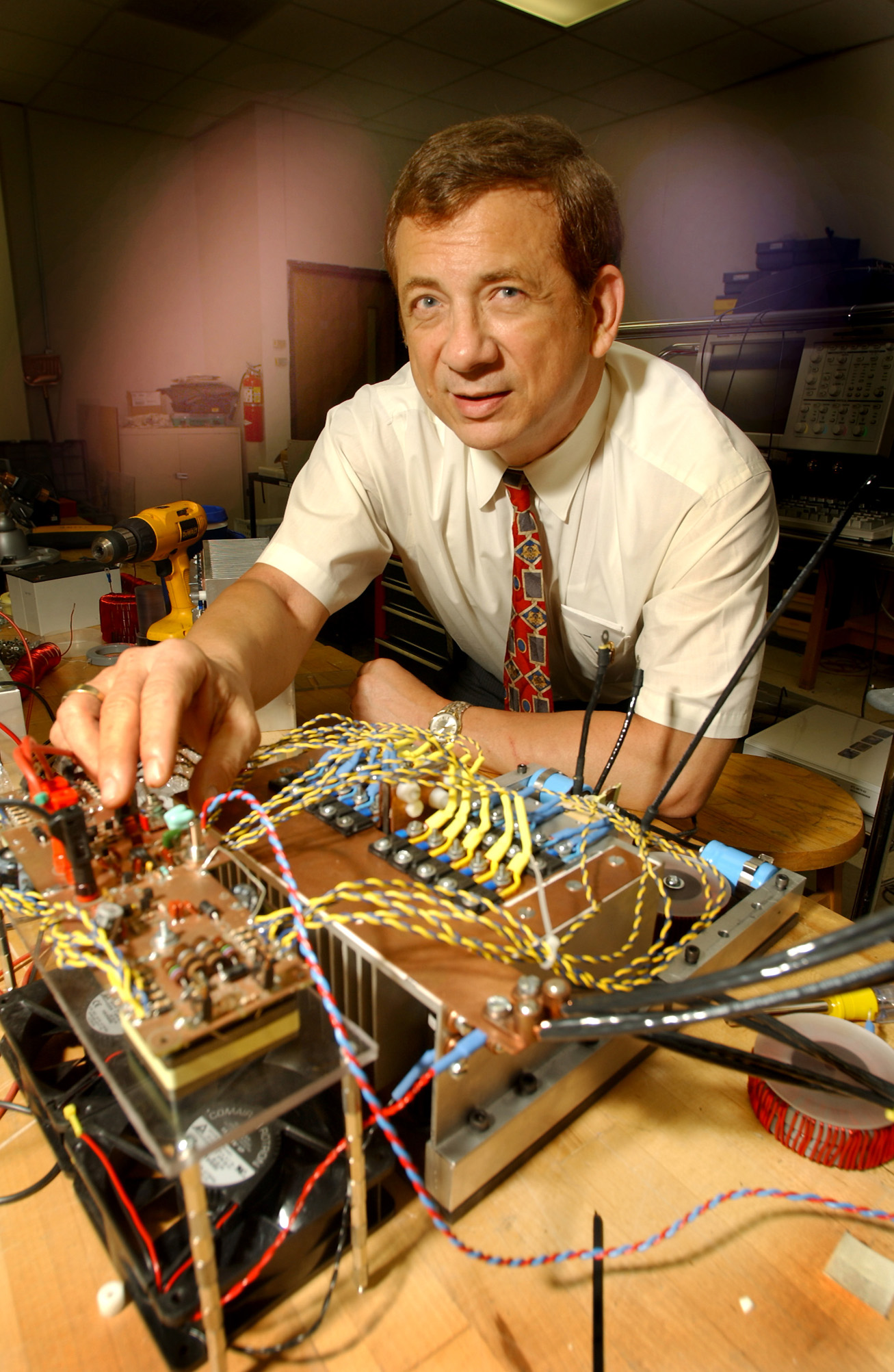Contact: Phil Hearn

Marshall Molen
Mississippi State is among 17 universities named Tuesday to participate in a groundbreaking student engineering competition that could significantly impact the future design of automobiles and other vehicles.
The sponsoring U.S. Department of Energy and General Motors Corp. announced the teams chosen for the three-year project, "Challenge X: Crossover to Sustainable Mobility," during a conference of the Society of Automotive Engineers Government and Industry in Washington, D.C.
"Reducing petroleum use is vital to our nation's long-term energy security," said DOE acting undersecretary of energy David Garman, noting teams were selected through a competitive proposal process in 2003.
The university teams will re-engineer a 2005 Chevrolet Equinox with three basic goals: reduce energy consumption, decrease emissions, and maintain the performance and utility features of the compact SUV, which already provides competitive fuel economy.
Year one, starting this summer, will focus on modeling, simulation and testing of the powertrain and vehicle subsystems. In years two and three, students will integrate their advanced powertrain and subsystems into the Chevrolet Equinox.
"This is indeed one of the most exciting projects in which we have had the opportunity to participate," said Marshall Molen, principal faculty adviser for the MSU team, and distinguished professor of electrical and computer engineering.
"This will represent an opportunity for engineering students, both undergraduate and graduate, to participate in the development of a hybrid-electric vehicle," he added. Students will be expected to follow a design procedure similar to that employed by GM engineers, and will be evaluated from that perspective, he said.
"We will soon see a radically different vehicle that will have superior performance and efficiency while being more friendly to our environment, without compromising on vehicle size or comfort," said Molen. "Some estimate that within the next five years, one-half the cost of an automobile will be electronics."
Among MSU officials joining Molen at the Washington news conference were Provost Peter Rabideau, Bagley College of Engineering Dean A. Wayne Bennett and Don Trotter, vice president for strategic initiatives and interim director of the university's Center for Advanced Vehicular Systems, which will provide support for the MSU students. Michael Mazzola, who heads CAVS' alternative power systems thrust, and CAVS business development officer Bob Kirkland also participated in the event.
"Challenge X focuses on goals that are critical for our society--achieving fuel efficiency, reducing dependence on foreign petroleum and good stewardship of our environment," said Trotter. "It provides an exciting opportunity for students to apply their previous learning to solve real-system problems. CAVS intends to provide the best environment in the country for our students to compete."
Molen said the facilities and technical expertise available at CAVS make it possible for the Mississippi State team to compete on a national scale.
"MSU students will be using the most advanced computational tools in their design and will have modern automotive tools and instruments available in the CAVS laboratory," he said.
Also participating in the Washington announcement were overall MSU project student leader David Oglesby, a mechanical engineering graduate student from Columbus; and Christy Burton, an engineering major from Starkville and one of the authors of MSU's Challenge X proposal.
Justin Crapps, a senior mechanical engineering major from Florence, Ala., will coordinate the work of four technical groups within the MSU team. Those groups will be led by Kiran Solanki, a mechanical engineering graduate student from India; Philip Conley, an electrical engineering graduate student from Meadville; Patrick Shad Haynes, a senior mechanical engineering major from Blue Mountain; and Lindsay Assumption, a senior mechanical engineering major from South Africa.
"These student engineering competitions give the participants a major leg up when they enter the work force," said Bob Larsen, director of the Center for Transportation Research at Argonne National Laboratory, which manages the Challenge X program.
Tom Stephens, group vice president for GM's Powertrain Division, said, "Challenge X is a mechanism for demonstrating and expanding the progress that can be made when government, academia and the industry work together toward a common goal-sustainable mobility."
Other institutions selected to field teams in the competition included: Michigan Technological University, Ohio State, Penn State, Rose-Hulman Institute of Technology, San Diego State, Texas Tech, University of Akron, University of California, Davis, Michigan, Tennessee, Texas at Austin, Tulsa, University of Waterloo, Wisconsin-Madison, Virginia Tech and West Virginia.